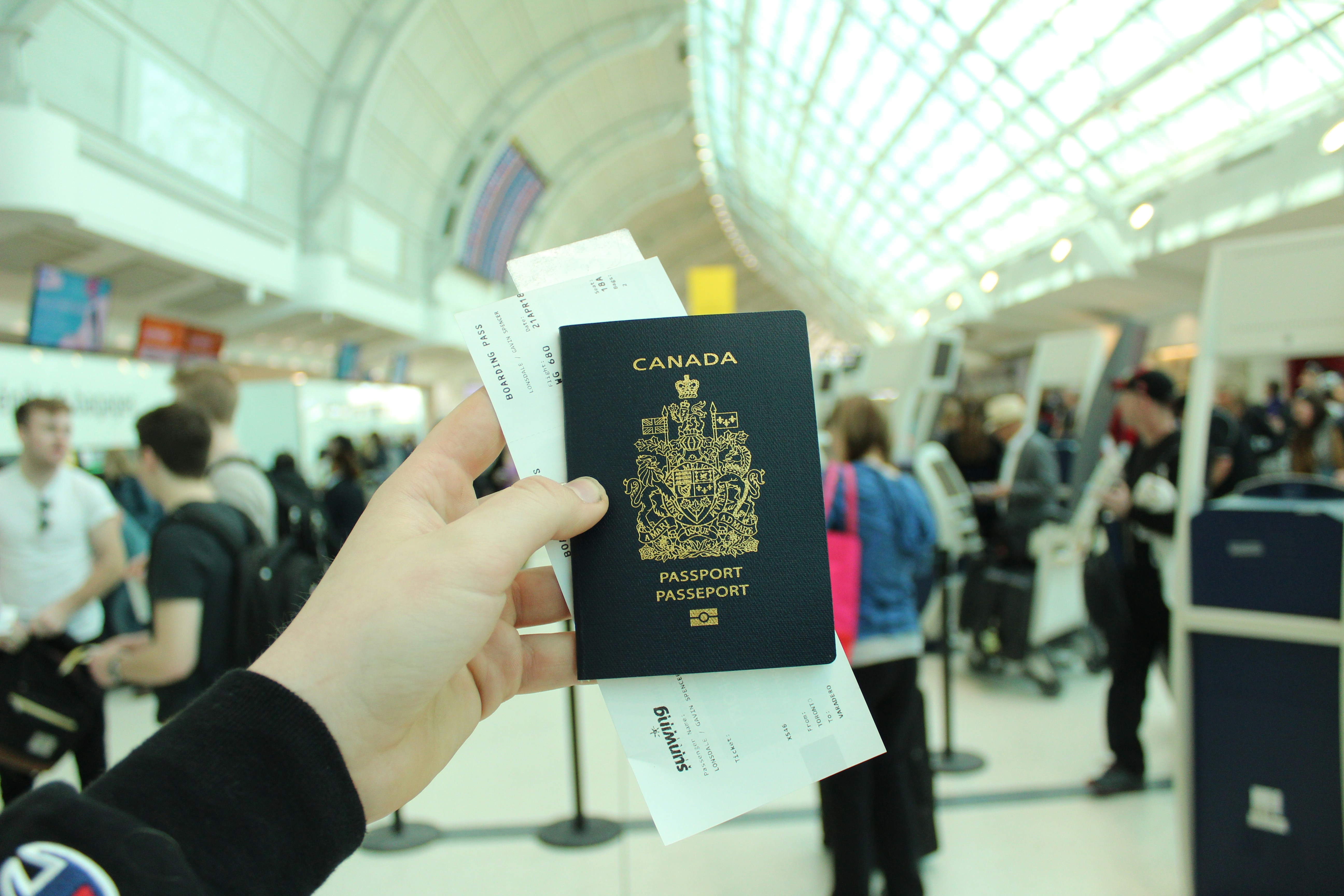Comprehensive Ranking system

What
is Comprehensive Ranking System?
The Comprehensive Ranking System (CRS) Score is
essential for every Express Entry draw. It's important to calculate your CRS
score before applying for Express Entry to assess your eligibility.
After calculating your CRS score with the CRS Calculator, you can consult an
immigration professional for advice on improving your score or discovering
which programs you qualify for.
Enhancing your CRS score can significantly boost your
chances of being selected in an Express Entry draw. Improving your CRS score is
the most effective way to increase your likelihood of receiving an invitation. To rank immigration candidates, the Canadian
government uses a merit-based points system called the Comprehensive Ranking
System (CRS). Each candidate in the Express Entry pool receives a CRS score.
Express Entry manages three programs:
- Federal Skilled Worker (FSW)
- Federal Skilled Trades (FST)
- Canadian Experience Class (CEC)
Every candidate who submits a profile to the
Express Entry pool is assigned a CRS score out of 1200 points. Approximately
every two weeks, the Canadian government conducts an Express Entry draw,
issuing Invitations to Apply (ITAs) for permanent residence to the
highest-ranking candidates. It's important to note that IRCC does not disclose
information about the date of the draw, the number of ITAs to be issued, or the
minimum required CRS score in advance of each draw.
What is my
Canada CRS score and how can I improve it?
Ø AGE
The maximum points an individual can receive for age
in the Comprehensive Ranking System (CRS) are 100 points (if they have a spouse
or common-law partner) or 110 points (if they do not). To achieve the
maximum points in this category, individuals must be between 20 and 29 years
old.
The minimum points for age are awarded to those under
17 or over 45, both receiving 0 points. For individuals between the ages of 17
and 45, the points awarded vary, with the highest points given to those in the
20-29 age range.
Ø
LEVEL OF
EDUCATION
The maximum points awarded for education level
in the Comprehensive Ranking System (CRS) is 150 points for a university-level
credential at the Doctoral level, applicable to individuals without a spouse or
common-law partner (with a spouse or common-law partner, it would be 140
points). Here's a breakdown of the points for those without a spouse or
common-law partner (note that points are slightly less for those with a spouse
or common-law partner):
·
Less than secondary or high school equivalent:
0 points
·
Secondary school or high school equivalent: 30
points
·
One-year post-secondary program credential: 90
points
·
Two-year post-secondary program credential: 98
points
·
Post-secondary program credential of 3+ years:
120 points
·
Two or more post-secondary program
credentials, with at least one lasting 3+ years: 128 points
·
Master’s level university credential, or an
entry-to-practice professional degree for an occupation:
·
Listed at NOC Level A
·
Requires licensing by a provincial regulatory
body: 135 points
·
University-level credential at the Doctoral
level: 150 points
Ø
OFFICIAL LANGUAGE
PROFICIENCY
Language ability in the Comprehensive Ranking System
(CRS) is divided into four subcategories: reading, writing, speaking, and
listening. The maximum points awarded for each subcategory are 32 points (with
a spouse or common-law partner) or 34 points (without a spouse or common-law
partner).
When the points for these subcategories are totaled,
the maximum number of points an individual can achieve is 128 points (with a
spouse or common-law partner) or 136 points (without a spouse or common-law
partner).Points are awarded based on the Canadian Language Benchmark (CLB)
level, with CLB 4 or lower receiving 0 points. Achieving CLB 10 or higher
awards the maximum points of 32/34 per subcategory, depending on whether the
individual has a spouse or common-law partner
Ø
SECOND OFFICIAL
LANGUAGE
For second official language proficiency in the
Comprehensive Ranking System (CRS), the subcategories are the same as for the
first language: reading, writing, speaking, and listening. The maximum points
for each subcategory are 6 points. The total points are capped at 22 points if
you have a spouse or common-law partner, and at 24 points if you do not have a
spouse or common-law partner.
Ø
CANADA WORK
EXPERIENCE
The maximum points awarded for Canadian work
experience in the Comprehensive Ranking System (CRS) are 70 points (with a
spouse or common-law partner) and 80 points (without a spouse or common-law
partner) for five years or more. Here’s the points breakdown for those without
a spouse or common-law partner:
·
Less than a year: 0 points
·
1 year: 40 points
·
2 years: 53 points
·
3 years: 64 points
·
4 years: 72 points
·
5 years or more: 80 points
This concludes this subsection. The maximum
number of points you can score for this section is 460 points (with a spouse or
common-law partner) and 500 points (without a spouse or common-law partner).
Ø SPOUSE OR COMMON LAW PARTNER
FACTORS
If you do
not have a spouse or common-law partner, you can skip the following
subsections. If you do, read on:
Spouse/Common-Law
Partner's Level of Education
Points awarded for this category range from 0
to 10. The highest-ranking categories are a Master’s degree and a
Doctoral-level university credential, both worth 10 points. To determine your
spouse/common-law partner's ranking, refer to the CIC table.
Spouse/Common-Law
Partner's Official Language Proficiency
This section is divided into four categories:
reading, writing, speaking, and listening. Your spouse/common-law partner can
earn up to 5 points per category, with a maximum score of 20 points.
Spouse/Common-Law
Partner's Canadian Work Experience
The maximum points awarded for Canadian work
experience is 10 points for five years or more. The points breakdown is as
follows:
·
Less than a year: 0 points
·
1 year: 5 points
·
2 years: 7 points
·
3 years: 8 points
·
4 years: 9 points
·
5+ years: 10 points
The maximum number of points your
spouse/common-law partner can contribute is 40 points, bringing your potential
total to 500 points when combined with core/human capital factors.
Ø SKILL TRANSFERABILITY FACTORS
This final section of the Express Entry 2015
CRS criteria evaluates your level of education, Canadian work experience,
foreign work experience, and relevant qualifications for trade occupations.
Some sections also consider language proficiency, contributing to your overall
score.
Ø EDUCATION
This subsection is based on two factors:
1.
Post-Secondary Degree with
Good Official Language Proficiency
2.
You must have a CLB 7 or
higher in your official language abilities to score points.
The maximum 50 points are awarded if you have
a CLB 9 or higher and the highest level of education (two or more
post-secondary education credentials, at least one lasting three years or
longer).
3.
Post-Secondary Degree with
Canadian Work Experience
Points are awarded based on your education
level combined with the number of years of Canadian work experience (1 year or
2+ years).The maximum score for this section is 50 points.
4.
Foreign Work Experience with
Official Language Proficiency
The maximum score for foreign work experience
is 50 points.You need a language proficiency of CLB 9 or higher to score the
maximum points, along with 3+ years of foreign work experience.
5.
Canadian Work Experience and
Foreign Work Experience
To score the maximum 50 points, you need 3+
years of foreign work experience combined with 2+ years of Canadian work
experience.
6.
Certification of
Qualifications (for Trade Occupations) with Official Language Proficiency
If you have a certificate of qualification and
a CLB 5+ in all official language abilities (with one or more under 7), you
will be awarded 25 points. The maximum 50 points are awarded if you have a
certificate of qualification and a CLB 7+ in all four official language
abilities.
The subtotal for this section is 600 points.
An additional 600 points can be awarded for:
·
Arranged employment
·
Provincial or territorial nomination (PNP)
The maximum score for the Express Entry 2015
Comprehensive Ranking System (CRS) is 1200 points.
Contact
Visa Nexa for Immigration Assistance
Need Canadian immigration assistance? Visa Nexa Inc.
is here to help. We can assess your eligibility and submit your application to
the Canadian government. With over 10 years of expertise, Visa Nexa in
Mississauga, Ontario has been helping clients achieve their dream of becoming
Canadians. Our head offices are in Delhi (Visa Walk) and Chandigarh (The
Mentors). Reach out to us today and take the first step toward your new life in
Canada!
Click here to fill the CONTACT US form



